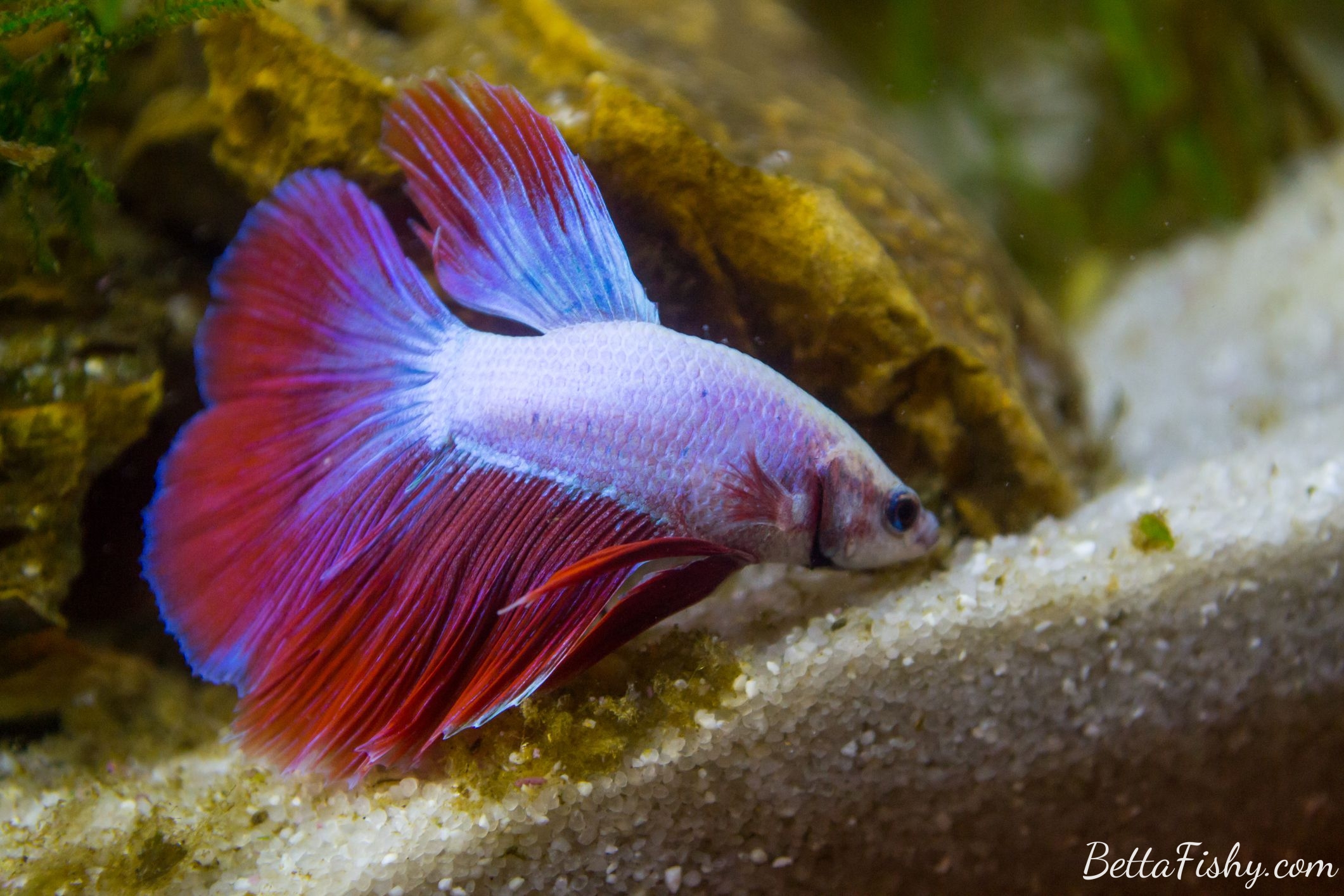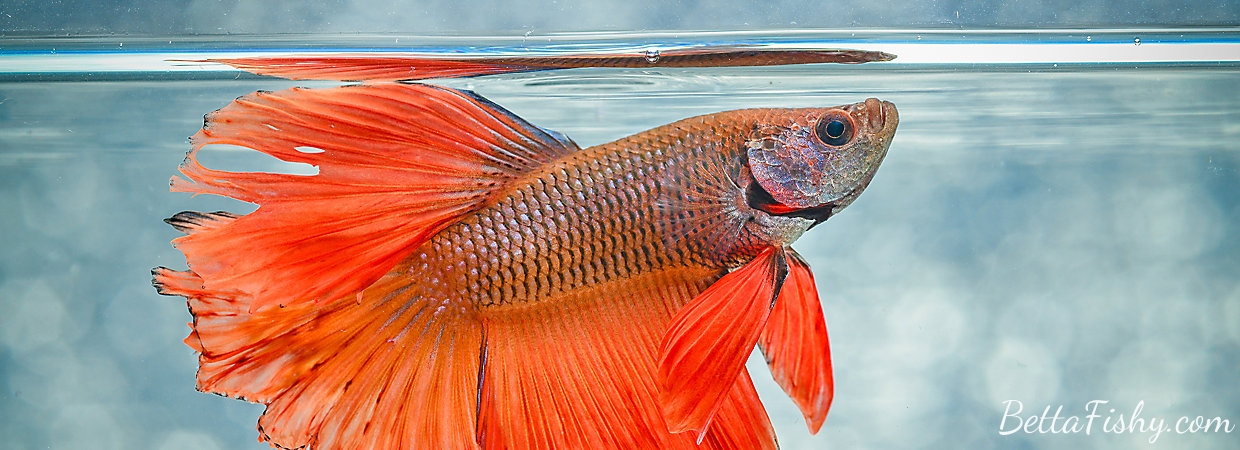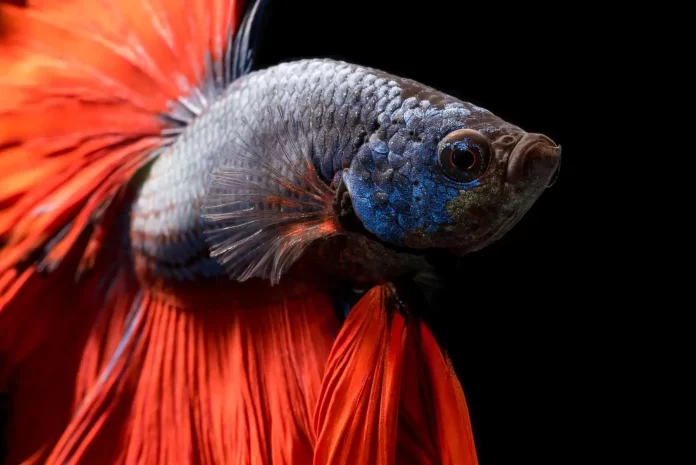The vibrant flash of a Betta fish, gracefully gliding through its miniature kingdom, is a thing of captivating beauty. However, beneath this mesmerizing exterior lies a hidden truth that might raise your eyebrows – Betta Fish stomach explode. Yes, you read that right. But before you picture little fishies spontaneously combusting in your tank, take a deep breath. While this gruesome fate is technically possible, it’s far from inevitable, and the key to prevention lies in a surprising source: experience.
Introduction: The strange truth about Betta Fish stomach explode
Imagine a tiny, jewel-toned fighter jet with an insatiable appetite. That’s essentially a Betta fish. Their compact bodies house surprisingly large stomachs, capable of expanding to accommodate enormous meals. This, coupled with their naturally aggressive feeding behavior, leaves them susceptible to a condition known as bloat. In layman’s terms, their bellies can overstretch beyond capacity, potentially leading to organ damage and, yes, even rupture.
But here’s the good news: just like a seasoned chef learns to cook without setting the kitchen on fire, Betta fish also gain wisdom from experience. As they mature and adapt to their surroundings, they develop an intuitive understanding of how much and what to eat to avoid digestive disasters. Let’s dive deeper into how experience plays a crucial role in keeping Betta fish’s stomachs from exploding.
How to Avoid Betta Fish Stomach Explosion
Understanding the Appropriate Feeding Schedule for Betta Fish

One of the most critical factors in preventing a Betta fish’s stomach from exploding is establishing a proper feeding schedule. Unlike other fish species, Betta fish are not grazers and should not be fed constantly throughout the day. Overfeeding can lead to bloating, constipation, and ultimately, death. It’s essential to understand that Betta fish have a small stomach and can only consume a limited amount of food at a time.
A general rule of thumb is to feed your Betta fish two to three pellets, twice a day. However, this can vary depending on the size and age of your fish. Younger Betta fish may require more frequent feedings, while older ones may need less. It’s crucial to observe your fish’s behavior and adjust the feeding schedule accordingly. If you notice that your Betta fish is not finishing their food within a few minutes, it’s a sign that they are full, and you should reduce the amount of food given.
Recognizing the Signs of Overfeeding and Adjusting accordingly
As mentioned earlier, overfeeding is one of the leading causes of bloating in Betta fish. It’s essential to recognize the signs of overfeeding and take immediate action to prevent any digestive issues. Some common symptoms of overfeeding include a bloated stomach, loss of appetite, lethargy, and difficulty swimming. If you notice any of these signs, it’s crucial to stop feeding your Betta fish for a day or two to allow their digestive system to rest and recover.
In some cases, overfeeding can also lead to swim bladder disease, where the fish has difficulty maintaining its balance and staying upright. This condition can be fatal if left untreated, so it’s vital to monitor your Betta fish’s behavior and make adjustments to their diet as needed.
Providing a Balanced Diet to Keep Your Betta Fish Healthy and Satisfied

Just like humans, Betta fish also require a balanced diet to stay healthy and happy. While their primary diet consists of pellets, it’s essential to introduce variety into their meals. A well-rounded diet for Betta fish includes high-quality pellets, frozen or live foods such as bloodworms, brine shrimp, and daphnia, and occasional treats like freeze-dried foods.
A varied diet not only provides essential nutrients but also keeps your Betta fish interested in their food. It’s crucial to remember that Betta fish can be picky eaters, and it may take some trial and error to find the right combination of foods that they enjoy. However, once you establish a balanced diet for your Betta fish, it will contribute to their overall health and prevent any digestive issues.
Notes to Ensure a Healthy Digestive System in Betta Fish

Now that we understand the importance of experience in preventing a Betta fish’s stomach from exploding let’s look at some additional tips and tricks to ensure a healthy digestive system for these beautiful creatures.
Maintaining water quality for optimal digestion
Water quality plays a significant role in the well-being of Betta fish. Poor water conditions can lead to stress, which can weaken their immune system and make them more susceptible to digestive issues. It’s essential to regularly test the water parameters and perform partial water changes to maintain a clean and healthy environment for your Betta fish.
Introducing variety in the diet of bettas
As mentioned earlier, a varied diet is crucial for the health of Betta fish. Along with providing different types of food, it’s also essential to vary the feeding methods. For example, instead of always feeding pellets, try offering frozen or live foods occasionally. This will not only provide essential nutrients but also stimulate natural hunting behaviors in Betta fish, keeping them mentally stimulated and satisfied.
Regular observation and monitoring of your pet’s behavior
One of the best ways to prevent any digestive issues in Betta fish is to observe and monitor their behavior regularly. By paying attention to how much they eat, how often they eat, and their overall behavior, you can quickly identify any potential problems and take necessary action. It’s also essential to keep track of their weight and make adjustments to their diet if needed.
Conclusion: The Importance of Experience in Preserving the Well-Being of Betta Fish’s Digestive System
In conclusion, a Betta fish stomach explodes, which may sound frightening, but it is not an unavoidable doom. With proper care and experience, this can be easily prevented. By understanding the appropriate feeding schedule, recognizing the signs of overfeeding, providing a balanced diet, and following some simple tips and tricks, you can ensure a healthy digestive system for your Betta fish.
Experience plays a crucial role in keeping Betta fish from having their stomachs explode. As they mature and adapt to their surroundings, they develop an intuitive understanding of how much and what to eat to avoid digestive disasters. So, the next time you admire your Betta fish gracefully gliding through its miniature kingdom, remember that their delicate dance of dinner is a result of their wisdom gained through experience.


